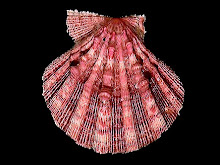Welcome to Mitigation
So what does that mean, anyhow? To mitigate oneself, or their life, let alone while in college? How can anyone find Apollonian insight or ecumenical balance in today's hectic schedule of events? Well, that's not my goal. This blog is an attempt to question mitigation of another sort altogether, but will also include some of my other projects and thoughts as the year moves forward (sometimes leaving me lagging a little behind).
The word mitigation is defined as: to moderate in force or intensity. When applied to wetlands conservation, however, the definition seems to change radically, perhaps reflecting more ancient notions of wetlands conservation: the act of absolving or the state of being absolved. Irreplaceable wetlands are being pandered off for a price, often at the push of the leaders many have elected to protect such national treasures. The solution to this loss is that the Corps requires the developer to save wetlands at another site or build new, incomparable wetlands at the existing site. But, what do you do when there are no wetlands left to buy because the ones previously set aside are eventually sold for development as well? How can you justify man-made wetlands when there is no data showing success in projects by non-conservational entities, due to the indiscretion that no one is out collecting that much-needed data (but oh yes, there are industrial-type uses of wetlands with plenty of data on its effectiveness in filtering our contaminants but not in ability to sustain wildlife biodiversity)? It would seem that recently published data indicates, however, that wetlands are being bull-dozed and replaced in mini-versions to suit the needs of humans for key purposes: cheap filtration through planting of select vegetation and permitting among them, rather than leaving the wetland(s) standing intact. It is not known the consequences of diverting the great flow of wetland water across the state, nor is it known if scientifically organized wetlands built to suit the needs of industry and agriculture will effect biodiversity, however, the effect of radically altering he forces and processes that produce and control all the phenomena of the material world does not sound like a good idea. It truly is playing God in the eyes of some. Selfishly molding the world in our image of beauty, to suit our purpose, and staggering thousands of years of life in the making (I say that in reference to life in FL after the asteroid impact event which caused the mass extinction). Little do we know, as studies in mice would suggest, that even our fertility is being permanently removed from our generations, some sort of perverse side effect of eugenics from bioaccumulation of pesticides, which, in a way, would be a good thing. Perhaps slow us down a little.
Drought has been all too frequent, annual rainfall has been down for years, migratory and resident bird numbers are plummeting at an alarming rate, and temperatures have been increasing incrementally. Are these indications of something wrong?






0 Comments:
Post a Comment
<< Home